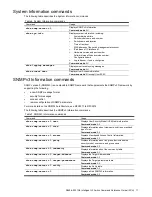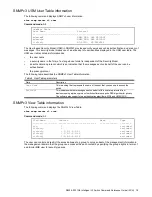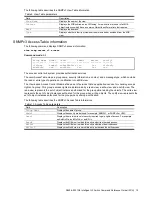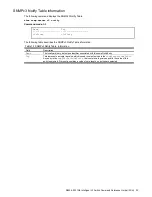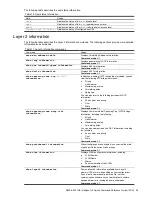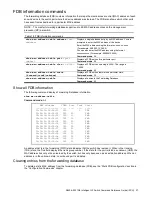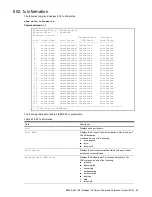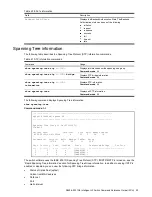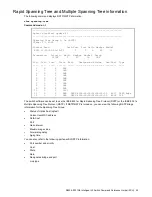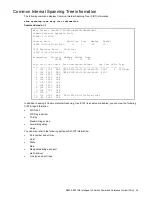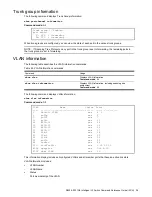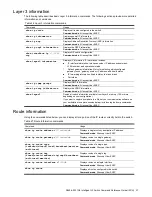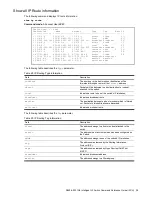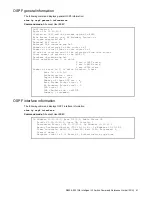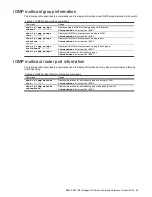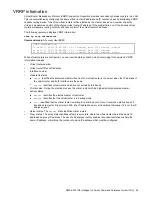
N8406-023 1Gb Intelligent L3 Switch Command Reference Guide (ISCLI) 31
Maximum age value
Forwarding delay
Aging time
You can also refer to the following port-specific STP information:
Port number and priority
Cost
State
Port Fast Forwarding state
Designated bridge
Designated port
The following table describes the STP parameters.
Table 22 STP parameters
Parameter
Description
Current Root
Shows information about the root bridge for the Spanning Tree. Information includes the
priority (hex) and MAC address of the root.
Path-Cost
Path-cost is the total path cost to the root bridge. It is the summation of the path cost
between bridges (up to the root bridge).
Port
The current root port refers to the port on the switch that receives data from the current root.
Zero (0) indicates the root bridge of the STP.
Priority
(bridge)
The bridge priority parameter controls which bridge on the network will become the STP root
bridge.
Hello
The hello time parameter specifies, in seconds, how often the root bridge transmits a
configuration bridge protocol data unit (BPDU). Any bridge that is not the root bridge uses
the root bridge hello value.
MaxAge
The maximum age parameter specifies, in seconds, the maximum time the bridge waits
without receiving a configuration bridge protocol data unit before it reconfigures the STP
network. If the bridge is not the root bridge, it uses the
MaxAge
value of the root bridge.
FwdDel
The forward delay parameter specifies, in seconds, the amount of time that a bridge port has
to wait before it changes from learning state to forwarding state. If the bridge is not the root
bridge, it uses the
FwdDel
value of the root bridge.
Aging
The aging time parameter specifies, in seconds, the amount of time the bridge waits without
receiving a packet from a station before removing the station from the Forwarding Database.
Priority (port)
The port priority parameter helps determine which bridge port becomes the designated port.
In a network topology that has multiple bridge ports connected to a single segment, the port
with the lowest port priority becomes the designated port for the segment.
Cost
The port path cost parameter is used to help determine the designated port for a segment.
Generally speaking, the faster the port, the lower the path cost.
State
The State field shows the current state of the port. The State field can be one of the
following:
BLOCKING
,
LISTENING
,
LEARNING
,
FORWARDING
, or
DISABLED
.
Designated
bridge
Shows information about the bridge connected to each port, if applicable. Information
includes the priority (hex) and MAC address of the Designated Bridge.
Designated port
The port ID of the port on the Designated Bridge to which this port is connected. This
information includes the port priority (hex) and the port number (hex).

